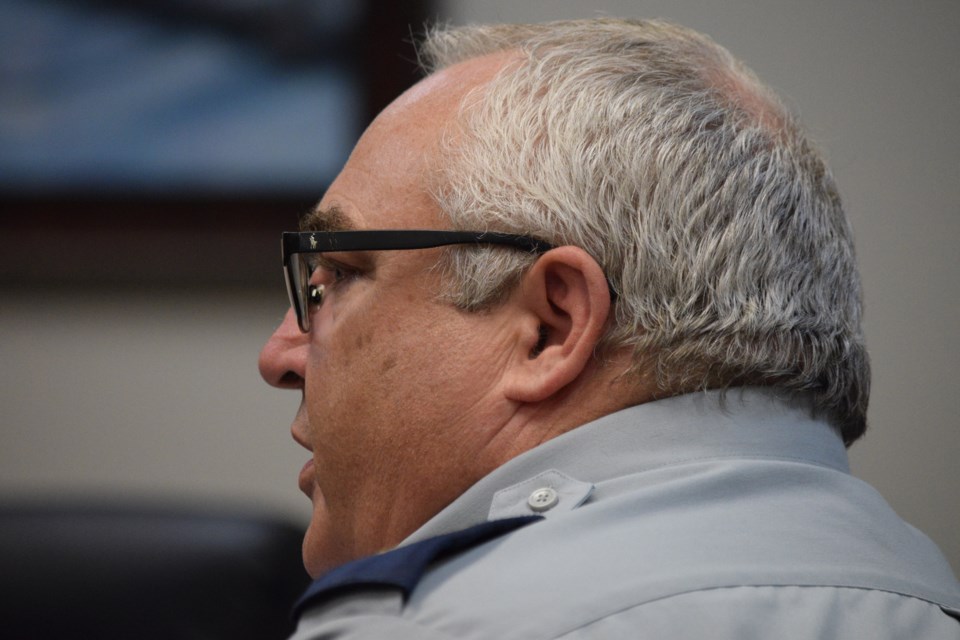BARRHEAD - The Barrhead RCMP will soon have a new resource to draw on when they respond to calls that involve someone who is known to suffer from mental health or addiction issues.
At least in theory.
RCMP Sgt. Bob Dodds told Town of Barrhead councillors during their June 14 meeting that the police force has created new specialized units called Regional Police and Crisis Team (RPACT) that rural detachments can call upon when they are called upon to deal with individuals they suspect have underlying mental health or addiction issues.
The RPACT units consist of a specialized RCMP member and a mental health clinician.
Dodds noted that 'K' Division's Eastern District, which includes Barrhead, will have a handful of these specialized units. The nearest will be in Westlock.
"(Their job) will be to identify and assist persons living a high-risk lifestyle, homelessness, and mental health addictions and communicate with them, talking about their issues and try to work with them to get them on a better path," he said, adding they would be able to lean on the unit.
"If the Barrhead RCMP respond to a complaint involving Joe Smith, who is suspected to have a mental health issue, we can access the team and ask them what we should watch for, what his triggers are and what resources are available to him," Dodds said. "Hopefully, with that information, we can handle the situation better, quicker and pass that person on to other agencies who are best equipped to provide help."
Coun. Dausen Kluin asked about the RPACT unit's coverage area.
Dodds replied that most likely, the unit would cover Barrhead, Westlock, Athabasca, Boyle, Slave Lake, and Red Water.
Dodds said the unit will also attend calls with regular members but said the odds of the RPACT unit being available when a local detachment needs them is slim.
"But if they are on shift, we can get a hold of them quickly. It's far from perfect, but it's a step in the right direction," he said. "All of us have seen in the media about a wellness check that has gone sideways, and someone ends up dead. This is an effort to try to avoid that sort of tragedy from happening."
Although it is not specifically an RCMP initiative, Dodds said another program RCMP can call upon for assistance is the Domestic Abuse Response Team (DART).
DART is a partnership between Alberta Health Services (AHS) and community domestic abuse and family violence prevention organizations.
DART can help individuals access specialized risk assessment, crisis intervention, emotional support, education, safety planning, safe accommodations, information about local resources, and connection to follow-up services.
Funding for the DART expansion comes from a $2.6-million grant from the province designed to expand family violence services for rural, remote and Indigenous communities. The DART that serves Barrhead is a partnership between AHS and the Jessica Martel Memorial Foundation, which operates a safe home in Morinville.
"If we have a victim of domestic abuse, we (and the victims themselves) have a 24-hour number to access several different resources. It is a huge resource for us. We don't need it very often, maybe half a dozen times a year, but when we do, it is absolutely critical," he said.
Another RCMP initiative that will be coming to the Barrhead along with all the other detachments is the introduction of body cams.
It is an initiative that Dodds says he welcomes.
"I am a firm believer that our members get things right more often than they get them wrong," he said. "So if we get a complaint from someone, (the camera) will confirm that the member did it right or if they did something wrong, they will be held accountable for what they did and I am not uncomfortable with that."
Dodds added that most if not all RCMP members welcome the devices, as not only does it provide training opportunities and hold them more accountable, but it also provides police with a measure of protection.
He used the example of a member who pointed their weapon at a driver during a traffic stop.
After reviewing the car camera footage, he said, it proved that at no time during the interaction did the member even touch their sidearm.
However, he said, it may be a while before the cameras are introduced in Barrhead.
"It is a three-year project and will be rolled out gradually," Dodds added. "It will take a lot of resources to store that data, conduct training, and then distribute the cameras themselves."
He also noted that the cameras will come at a cost, saying the federal government is committed to paying for the first three years, after which the municipalities would have to pick up the tab.
Kluin asked if municipal peace officers were also eligible for the bodycams.
Mayor Dave McKenzie noted that the town has already equipped their bylaw officer with a body camera.
Barry Kerton, TownandCountryToday.com



